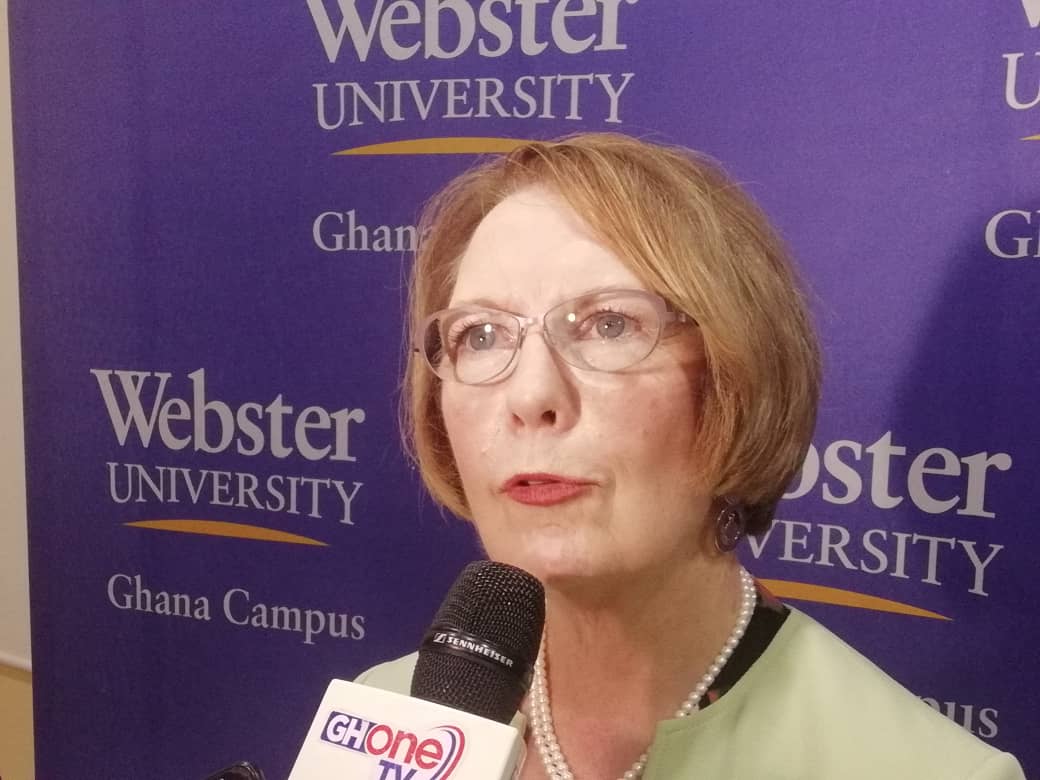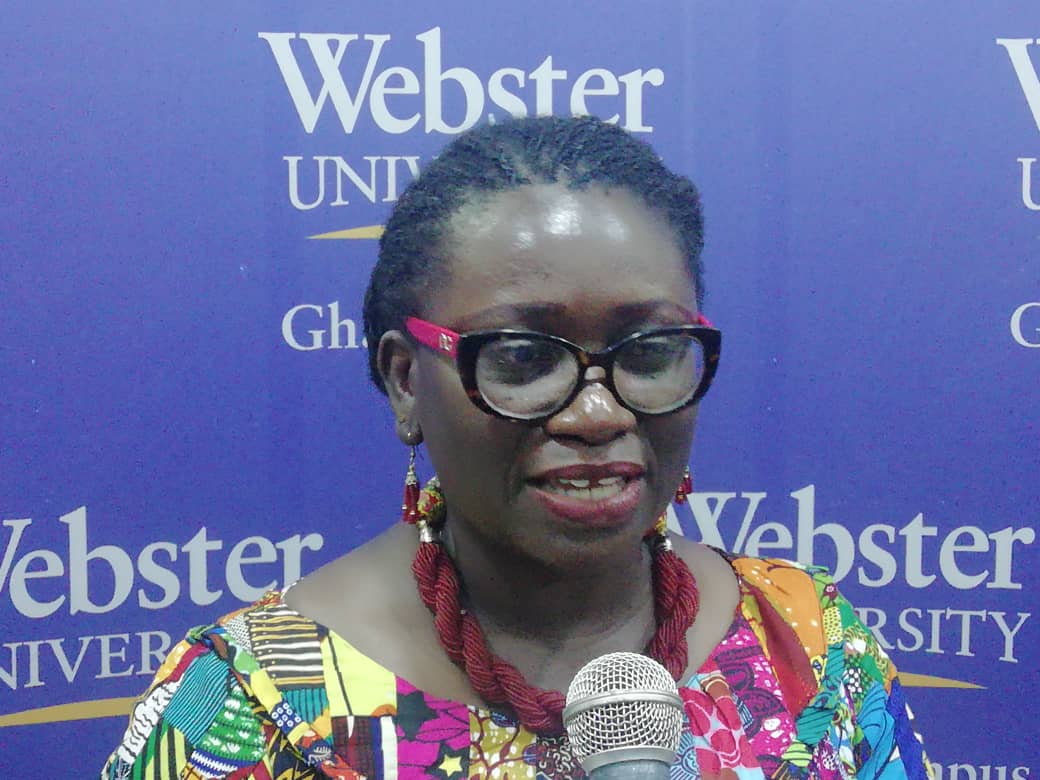Associate Director of Diversity at the Ashesi University, Millicent Adjei, has underscored the need for tertiary institutions to embrace a culture that allows students to contribute to discussions within the academic discourse communities.
According to her, the practice whereby members of the academic faculties assume they are a repository of knowledge is detrimental to growth and development of the ordinary student.
It is not uncommon to see tertiary students having difficulties in making their opinions known in a typical Ghanaian academic institution.
But speaking on the importance of global education in the 21st Century during a public lecture at the Ghana campus of the Webster University, Madam Adjei said it was high time this cycle was broken to enable institutions produce global problem solvers who will help reduce the world’s challenges.
“We will get our students being timid and not being able to engage with anyone. The students are always waiting to be instructed. Not been proactive in seeking solution. Globally they will not be competitive because out there it’s fast moving.”
“And if you don’t have students who can identify quickly problems and respond to them because they haven’t been taught to do that, then we are not going to be competitive. We will continue to produce students who can’t compete on the global stage”, she stressed.
Lack of access to higher education
On her part, Dr. Elizabeth Stroble, President of Webster University admitted that although Ghana has a robust second cycle education system, many of the students who graduate from the Senior High Schools are unable to acquire tertiary education due to lack of space and funds.
She described the situation as worrying because Ghana will not be able to produce the human resource capacity it needs for socio-economic development.
“There is hunger for education in Ghana because it has invested greatly in secondary education. There is a large number of Ghanaian students with the skills to do university work. But, there are no seats in the universities. There is therefore the need to truly provide the funding base that can support students who have great talent without the financial resources to achieve the degree. That is a challenge in Ghana.”

Partnership is key to our survival
Dr. Stroble is optimistic that a partnership between government and private tertiary institutions will complement efforts towards the introduction of cutting edge programs that will bridge the academia –industry divide.
“The Ministry of Education is highly encouraged to educate our young people to help them find a way to build their skills base to help them compete in the global economy. We are looking for partnership with government, NGOs, business and industry because we know how to bridge the gap between what happens in the classroom and the workplace. Internship, tuition emission employers will help us grow our capacity.”
–
By: Nii Larte Lartey | citinewsroom.com | Ghana














